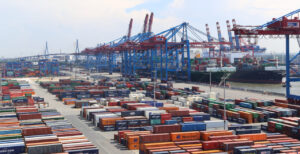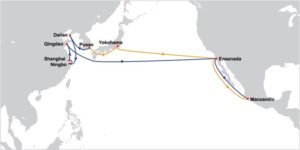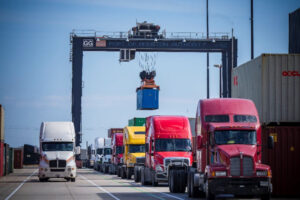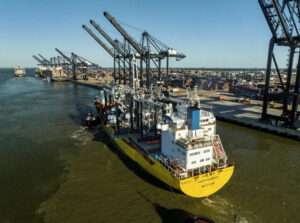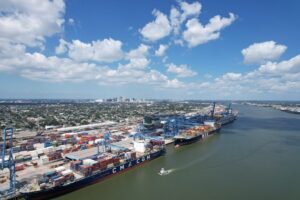The Port of Los Angeles has announced it will begin collecting its Clean Truck Fund (CTF) Rate to help speed its transition to a zero-emissions port.
The move was approved by the Los Angeles Board of Harbor Commissioners and will see revenues funding zero-emissions trucks and associated infrastructure to further the ports’ goal of zero-emissions by 2035.
In a statement from the Port of Los Angeles, the approved CTF Rate of $10 per TEU haled by non-exempt trucks, was jointly set by the ports of Los Angeles and Long Beach in March 2020. The CTF Rate will be charged to cargo owners whose containerised cargo is trucked in or out of the port terminals.
“The Port of Los Angeles, our longshore workers, the entire supply chain, and our frontline communities have demonstrated extraordinary dedication throughout this unprecedented crisis,” said Mayor Eric Garcetti.
“As we continue to move record-breaking cargo through the busiest Port in the Western Hemisphere, it is vital that we implement the Clean Truck Fund Rate to expedite the transition of trucks servicing the port to zero-emissions. Cleaning up the air at our port will protect surrounding neighbours, workers, and our region as a whole. I am proud to have championed this program and thank the Commissioners for this significant policy.”
The port will also soon begin seeking proposals from local drayage companies partnering with truck manufacturers to deploy 10 zero-emissions short-haul drayage trucks that call at marine terminals and operate within a short distance of the ports.
The port will exempt trucks that meet or exceed California’s low NOx standard from this rate until 31 December 2027. However, the low NOx trucks must be enrolled in the Port Drayage Registry and the port service by the end of 2022.
Gene Seroka, Executive Director for the Port of Los Angeles, added “Today’s action by the Los Angeles Board of Harbor Commissioners marks the next phase of our transition toward a zero-emissions truck fleet. The Clean Truck Fund Rate is just one component of the funding needed to achieve our ambitious goals. The transition to ZE trucks will require a broad public-private partnership.
In another effort to lower its carbon footprint, the Port of Los Angeles previously teamed up with partners to launch five new hydrogen-powered fuel cell electric vehicles (FCEVs) and the opening of two hydrogen fuelling stations.
Announced in June 2021, the move came as part of the $82.5 million Shore-to-Store (S2S) project. Over a dozen public and private partners have collaborated with the port for a 12-month demonstration of the FCEVs.


